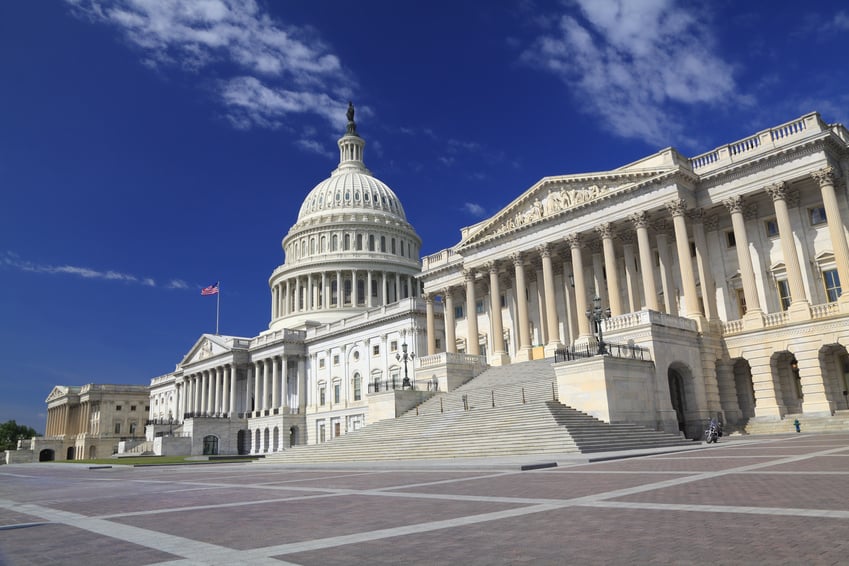In brief
On 21 March 2022, the US Securities and Exchange Commission (SEC or Commission) issued its long-awaited proposed rules (Rule Proposal) that, if adopted as currently drafted, would mandate both domestic and foreign registrants to make a variety of climate-related impacts and risk disclosures in registration statements and annual filings under the Securities Exchange Act of 1934 (Exchange Act).
Contents
- Summary of Required Disclosures Under the Rule Proposal
- Attestation Requirements for GHG Emissions Disclosures
- Expanding the Materiality Standard?
- Phased-In Approach to Compliance Date
- What happens next?
In an effort to meet the Commission’s promise of promulgating “consistent” and “comparable” standards, the proposed rules will seem familiar to companies who already provide investors with reporting under third-party disclosure frameworks since the SECs framework is expressly modeled on those published by the Task Force on Climate-Related Financial Disclosures (TCFD) and Greenhouse Gas Protocol (GHG Protocol).
According to the SEC, it is responding to investor demand for more information about the business risks posed by climate change, as well as information about companies’ responses to and strategies for managing these risks. The SEC further emphasized the “significant” impact that climate-related risks may have on a company’s future financial performance and investors’ return on investment. While it acknowledged the recent proliferation in voluntary reporting and climate-related disclosure, the SEC noted that there is “considerable variation” in the content, detail, and location of that disclosure – and the fact that much of it occurs through sustainability reports and company websites, rather than reports filed with the SEC. Given that current voluntary reporting undertaken by some companies is neither consistent nor comparable across registrants – even those within the same industry – the Commission identified a need to provide investors with a standardized framework to provide meaningful, consistent and decision-useful disclosure.
In the Rule Proposal, climate-related risks are defined as the “actual or potential negative impacts of climate-related conditions and events on a registrant’s consolidated financial statements, business operations, or value chains, as a whole.” Further, in this context, “value chain” means “upstream and downstream activities related to a registrant’s operations.”
Summary of Required Disclosures Under the Rule Proposal
If adopted, the new rule would mandate that registrants include climate-related disclosure concerning:
● Corporate Governance. Governance and oversight of climate threats by corporate boards, including which board members and/or board committees are responsible for climate issues and whether any board members have relevant expertise related to these issues; how frequently the board considers climate issues; and whether climate-related issues are part of the overall company strategy and business, risk, and financial management oversight processes of the board, as well as whether the board has set any climate-related targets;
○ The Rule Proposal requests similar information for company management.
● Climate Risks. Identified climate risks and opportunities likely to have a material impact on the firm’s business and financial reporting;
○ What processes are in place for identifying and assessing these climate-related risks;
○ What the company’s plans are for managing the risk and how climate risk fits into the firm’s overall risk management process;
○ What the time horizon is – short, medium, long – for each impact described;
○ How identified climate risks likely will affect the company’s business and outlook;
○ Whether a transition plan toward a lower-carbon economy and related corporate processes are part of the firm’s strategy for managing the identified risks, the nature of such a plan, and the associated transition risks and expectations;
○ Whether a “scenario analysis” or similar tools were used to evaluate how the business is likely to respond to the risk(s), the nature of any such analyses, specifics about choices and inputs, as well as outputs, specifically those related to financial condition and impacts;
○ Qualitative description of the impacts of climate-related events on estimates and assumptions used to prepare the registrant’s financial reporting;
○ Consideration of the potential for climate-related events, such as severe weather, droughts, rising water levels, fires, or other types of naturally occurring events, and specifics about what the impact is or could be, in or on the company’s financial statements, as well as on financial reporting estimates and assumptions
● Greenhouse Gas Emissions
○ While purporting to be consistent with the GHG Protocol, the Rule Proposal, by design, does not incorporate all of the requirements of that protocol.
○ Scope 1 and Scope 2 Emissions Disclosure. Direct greenhouse gas (GHG) emissions (Scope 1) and indirect GHG emissions from purchased electricity and other energy sources (Scope 2); disaggregating Scope 1 from Scope 2, and by each constituent greenhouse gas.
○ Scope 3 Emissions Disclosure. Indirect GHG emissions (Scope 3), from activities within the company’s value chain, for all registrants except smaller reporting companies, unless the company has set a GHG target that includes Scope 3;
■ If the company has set GHG goals, specific information about those targets, including what activities and emissions are included, specifics on the action plan to meet the goals, updates to that action plan, and how offsets or renewable energy certificates fit into the plan, if applicable;
□ The Rule Proposal also mandates disclosure of and around the firm’s internal carbon price, if that is used in the company’s planning or assessment of climate-related issues;
■ Scope 3 disclosures also would be required if “material”;
■ By way of examples, the Rule Proposal includes a non-exclusive list of upstream and downstream activities that might be included in a company’s value stream for Scope 3 purposes;
■ Importantly, the proposal also includes a safe harbor for liability for disclosures of Scope 3 GHG emission data
○ GHG Intensity Disclosure. “GHG intensity” disclosures in connection with Scope 1, Scope 2 and, if applicable, Scope 3 emissions disclosures; defined “to mean a ratio that expresses the impact of GHG emissions per unit of economic value (e.g., metric tons of CO2e per unit of total revenues, using the registrant’s reporting currency) or per unit of production (e.g., metric tons of CO2e per unit of product produced).”
● Financial Statement Metrics.
○ Disclosure of “disaggregated climate-related impacts on existing financial statement line items,” unless the impacts fall below a specified threshold, together with related reporting included in a note to the company’s consolidated financial statements.
○ The Rule Proposal requires reporting of metrics falling into three categories: (i) financial impact metrics, (ii) expenditure metrics, and (iii) financial estimates and assumptions.
○ Note that, as a result, this reporting will be part of the company’s independent audit and within the scope of the company’s internal controls over financial reporting. The Commission also anticipates that these disclosures would be tagged in Inline XBRL structured data language.
Attestation Requirements for GHG Emissions Disclosures
In addition, for accelerated or large accelerated filers, the Rule Proposal requires that data disclosures concerning Scope 1 and Scope 2 GHG emissions be accompanied by an attestation from an independent source, which must meet minimum qualification standards. The SEC notes in the Rule Proposal that the reason for this attestation is that, unlike other data within a company’s financial reporting, the source of this data will be outside of the firm’s books and records and not subject to independent audit. Further, the Rule Proposal release cites analyses showing that a majority of companies currently making voluntary public reports of GHG emissions data include some form of assurance or verification, which suggested to the Commission that including this requirement was important to investors and the market.
The Rule Proposal includes requirements and standards for the providers of such attestations. There is also a phase-in period included for the assurance level of this attestation; in years two and three after compliance for Scope 1 and 2 emissions data, the confidence level must be at a minimum of “limited assurance,” thereafter “reasonable assurance” is required. Notably, the SEC is seeking comment on whether it should also require attestation concerning the effectiveness of the registrant’s controls over its Scope 1 and Scope 2 GHG emissions disclosure.
Expanding the Materiality Standard?
Once again, within the Rule Proposal release, the Commission has reiterated that “materiality” is not solely a financial standard but has been defined as information that a reasonable investor would consider important in making an investment decision or proxy voting determination. Of course, incorporating this standard, set forth in this way, into registrants’ periodic filing and disclosure requirements may alter how the SEC Staff views other disclosures unrelated to climate.
The Rule Proposal release also includes a discussion of how companies should be thinking about these disclosures, evaluating probability, potential magnitude, and potential financial impact, all of which should be familiar to those with experience evaluating financial reporting criteria and analyses; the Commission also seeks comment on the same.
Phased-In Approach to Compliance Date
The proposal includes a phased approach to the compliance date based on filer type:
- Large accelerated filers would be required to comply one year following the effective date, with Scope 3 emissions disclosures trailing, one year later
- Accelerated and non-accelerated filers would be required to comply with these climate-disclosure rules two years following the effective date, with Scope 3 emissions disclosures trailing the following year
- Smaller reporting companies would be required to comply three years following the effective date and are exempt from Scope 3 emissions disclosures.
What happens next?
The SEC has requested comments from the public on the rule as proposed. Specific questions on which the Commission seeks comments are incorporated throughout the proposal. Comments are due 60 days from the date of issuance (Friday, May 20, 2022) or 30 days after publication in the Federal Register, whichever period is longer.
Sometime after the comment period closes, the SEC will issue its final rule release; however, no matter what is in those rules, the expectation is that litigation will ensue and those proceedings may well delay implementation.
That said, companies that have been undertaking to provide investors and the market with voluntary disclosure on climate impacts and risks may choose to use the SEC’s Rule Proposal release as a guide for how to fashion their voluntary reporting; and those subject to climate-related reporting in other jurisdictions may find that taking into account the Commission’s disclosure regime may help to routinize their global reporting obligations.
Finally, for those companies that have chosen to undertake some level of climate-related reporting outside of their Exchange Act annual reports, they may find that during this uncertain period, before any SEC rule is effective, questions will continue to be raised by the Division of Corporation Finance, and perhaps even the Division of Enforcement, based on prior standards and rules, including the 2010 Guidance. Specifically, registrants can expect to be asked why this information is not “material enough” to include in the company’s SEC filings.
If you have questions about the Rule Proposal or are interested in submitting comments, please contact any of those attorneys listed on this alert or your usual Baker McKenzie contact.





